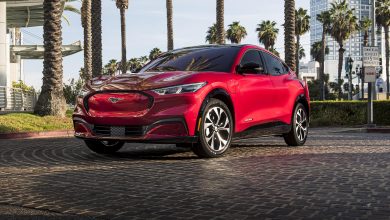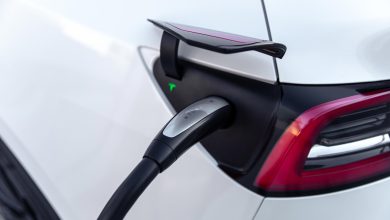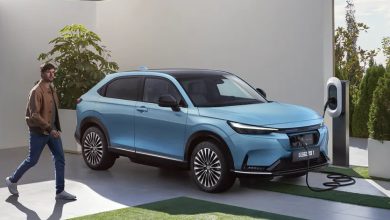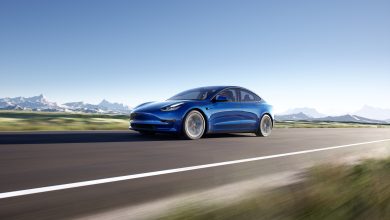Demand For Electric Vehicles Overtake Diesel Engines For The First Time In The UK
EV News2022 saw a 25% drop in car sales compared to 2019
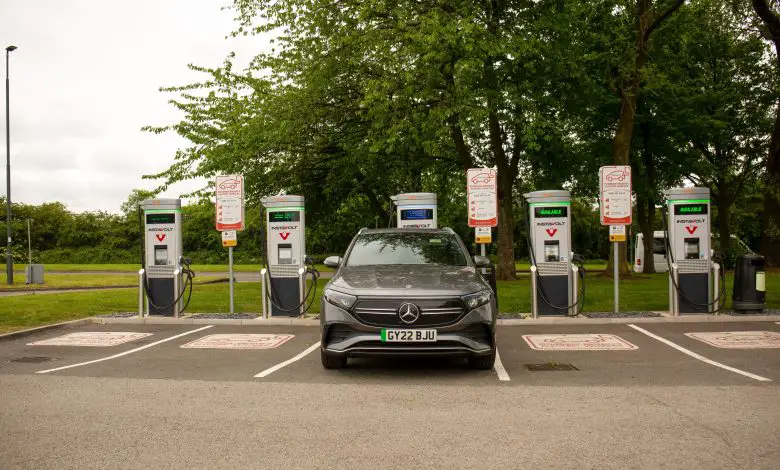
Emerging data from the Society of Motor Manufacturers and Traders (SMMT) has revealed that the sale of electric vehicles has surpassed that of internal combustion engines (ICEs) for the first time in the United Kingdom.
December 2022 marked the fifth consecutive month of growth for the new car market in the UK. There was an 18% increase in sales leading to a total of about 128,000 new registrations. In December, battery electric vehicles (BEVs) recorded their highest-ever monthly market share with a remarkable 32.9%.
Looking at the entire year, BEVs made up 16.6% of new car registrations. This makes BEVs the second most-sought powertrain after petrol engines. Private purchases made up more than half of the new car registrations in 2022.
However, the data shows that business and fleet buyers are responsible for the bulk of BEV purchases. They made up 74.7% of the volume gain in 2022 and about two-thirds of BEV registrations.
Nevertheless, only 1.61 million new cars were registered in the UK in 2022 which is the lowest since 1992. That figure is also about 700,000 units lower than pre-Covid levels.
“The automobile market is still far from its pre-pandemic performance,” said Mike Hawes, chief executive of the SMMT, “but could reverse economic trends by delivering significant growth in 2023.”
Covid and parts shortage to blame for lower car sales in the UK
The worst of the Covid-19 pandemic may be behind us but it appears the auto industry is still feeling the impact. Interestingly, car sales in 2021—a year that still experienced some lockdowns—were slightly higher than in 2022.
Also, 2022 saw a 25% drop in car sales compared to 2019—the last “normal” year before the Covid pandemic. While the data may seem confusing, the major problem for the low sales was due to a shortage of parts. Therefore, although there was a high demand for new vehicles in 2022, manufacturers struggled to fulfill orders.
“It is the effect of long Covid,” Hawes said. “The major issue is the global disruption to supply chains. We know the demand is there… manufacturers are simply struggling to make vehicles in sufficient amounts due to a shortage of semiconductors. However, the shortage of other parts also contributes to the problem.”
The sustained Covid restrictions in China (tagged the zero Covid policy) exacerbated supply chain shortages because the bulk of the chips needed for everything from entertainment systems to windscreen wipers were largely made in China.
The shortage of chips led to a long waiting list for drivers as it took some automakers over 12 months to deliver certain models.
Hawes emphasized that “the complexities of global manufacturing, increasing pressure on raw materials, and high logistics costs” had a heavy impact on the industry in 2022. But these pressures are beginning to ease according to Hawes.
While there is optimism that the car sales growth trend will continue into 2023 and the SMMT projecting 1.8 million sales, Hawes said “governments must assist every driver to go electric and coerce others to invest massively in charging infrastructure across the country,” for a zero-emission growth.
UK’s Zero Emission Vehicle (ZEV) mandate
The second half of 2022 saw significant growth in new car registrations with consistent growth for five months in a row. However, the growth was not enough to make up for the shortfall in the first half of the year.
EV sales rose from 190,700 to 267,000 in 2022 (an increase from 11.6% in 2021 to 16.6% in 2022). While the rising EV adoption has been impressive, SMMT has expressed concerns about the lagging charging infrastructure and unfavorable government policy.
“For a nation aiming to become the leader in electric mobility, words must be matched with policies and investment that eliminate consumer uncertainty over switching to electric, especially where to charge their vehicles,” Hawes said.
The United Kingdom is set to ban diesel and petrol-powered cars in 2030. Some hybrids will be allowed until 2035. Yet, there is no clear path to the achievement of that goal yet. This is a source of worry for manufacturers citing how the uncertainty can affect investment decisions.
While the Government’s EV Infrastructure Strategy estimates that the UK needs between 300,000 and 720,000 public chargers by 2030, the SMMT has warned that the number of public charging stations is not increasing at a rate that will meet that goal.
“To achieve the goal of 300,000 public chargers, you need to install about 100 new charging points every day until 2030,” Hawes said. “Up to the end of quarter three in 2022, the average was about 23 a day. Therefore, there is the danger that user experience will get worse before getting better.”
Hawes also noted that with the UK going into recession there might be a decline in demand for new vehicles.
The best-selling cars in the UK in 2022
The SMMT released a list of the top ten best-selling cars of 2022. Topping the list was Nissan Qashqai which comes in a hybrid version. The second on the list was Vauxhall Corsa. A year ago, Vauxhall Corsa was at the top of the list but slid a step in 2022.
The standout battery electric vehicle for 2022 was Tesla Model Y. It climbed to the third spot on the UK’s top 10 best-selling car list. Below is a list of the top 10 best-selling cars in the UK for 2022 as released by SMMT.
- Nissan Qashqai
- Vauxhall Corsa
- Tesla Model Y
- Ford Puma
- Mini
- Kia Sportage
- Hyundai Tucson
- Volkswagen Golf
- Ford Kuga
- Ford Fiesta
The market share of diesel and petrol-powered cars continue to shrink while the share of hybrids has remained fairly stagnant. On the other hand, the share of BEVs continues to grow which is a sign that drivers are increasingly recognizing that all-electric vehicles are superior to hybrids.
The UK added a record number of EV chargers in 2022
In 2022, about 8,700 new EV chargers were installed across the UK. This is the highest annual increase to date. In total, the UK now has about 37,000 EV chargers according to Zap-Map, an EV charge point app. Nevertheless, it is still far behind the growing EV adoption rate.
The statistics show that while there was a 38% increase in the number of EVs on British roads, the number of charge points only increased by 30% year-on-year. This will likely lead to long queues at available charging points. In August 2022, the UK government unveiled a £20m plan to add 1,000 new public EV chargers.
“The UK government has expressed commitment to install EV charging points,” said Justin Godfrey-Cass, the head of transport solutions at Wireless Logic. “However, the rollout has been marred by the need for access, installation cost, planning constraints, and the need for highly secure and resilient two-way connectivity in locations with erratic wired infrastructure.”
Although EVs are touted as the future of green mobility, automakers like Toyota are increasingly exploring other possibilities like the Toyota hydrogen pickup.

